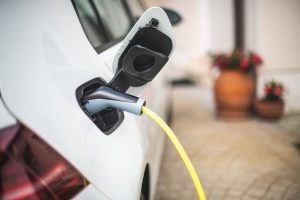First time using your EV for business? Here are a few things to know:
 As many drivers are getting their first electric vehicle (EV), a growing number of people are using their EV for business purposes for the first time.
As many drivers are getting their first electric vehicle (EV), a growing number of people are using their EV for business purposes for the first time.
While there’s not a lot of difference driving an EV to a petrol or diesel car, there are a few policy differences, so it’s working checking your driver handbook to make sure you know all the relevant details. If the handbook doesn’t have policies on EVs, then it might be something your employer will want to look into as they become more popular.
Claiming back your mileage
It’s no secret that running an electric car is cheaper than a petrol or diesel – it’s one of the main reasons that someone would drive an EV. However, as it costs less to run, it’s understandable that the amount per mile that you can claim back when travelling on company business is lower too.
For a petrol or diesel car, the amount you can claim back is 45p per mile for the first 10,000 miles and 25p thereafter. On an EV, the current advisory electric rate for company car drivers using fully electric vehicles on business trips is 7 pence per mile.
This rate is set by HM Revenue & Customs (HMRC) and is used to reimburse employees for the cost of electricity used for their business travel.
Charging from home
 If a company provides employees with a company car (leased or purchased), the business can pay for the installation of a home charging point without you having to pay any Benefit in Kind (BiK) charges. This means employees won’t have to pay any tax for having a charger installed which is good news as home charging is still by far the most cost-effective choice for EV drivers.
If a company provides employees with a company car (leased or purchased), the business can pay for the installation of a home charging point without you having to pay any Benefit in Kind (BiK) charges. This means employees won’t have to pay any tax for having a charger installed which is good news as home charging is still by far the most cost-effective choice for EV drivers.
As well as the charge not incurring VAT, energy providers are now offering charging plans for drivers where cheaper electricity can be accessed between midnight and 5am. This means charging your car overnight before a work journey the next day is the most convenient and cost-effective way to use your car to cover work miles.
Plan your journey
If you’re on a longer journey, you’ll need to consider whether you’ll need to stop to charge your car along the way, and schedule time into your journey for that. Be aware you will pay for the convenience of using a rapid charger while you are on the move which can be a fair amount more than using a home charge.
If you’re stopping for a meeting, or to make some phone calls, it’s worth considering using a slower charger to maximise your cost savings as the faster the charger, the more expensive the kWh, in the main.
If you’re considering making the switch to EVs through a salary sacrifice scheme, you can use Tusker’s free EV Hub which answers many of the questions that come with driving an EV for the first time. This includes a useful journey cost calculator and a journey planning tool.
Learn more about EVs